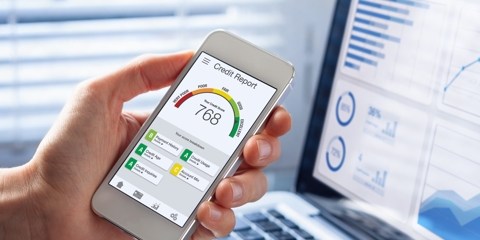If you are looking into bankruptcy as your primary debt relief option, but don’t know the difference between Chapter 7 and Chapter 13, you’ve come to the right place. Our bankruptcy attorneys will tell you everything you need to know about what separates the two chapters so you can have some insight into what might work best for you.
Understanding Chapter 7 Bankruptcy
Chapter 7 bankruptcies are commonly known as “liquidation” bankruptcies and are often the most popular option for consumers. This means that a debtor can liquidate their assets in order to discharge their debts. Although some of your assets may be liquidated, Chapter 7 bankruptcies can give you the opportunity to start completely fresh with your finances.
Assets Exempt From Liquidation in Chapter 7
There are certain assets that are exempt from liquidation, but those that are not are then liquidated and distributed to creditors as a means of paying off debt.
Exempt:
Your car (up to a certain value)
Household goods
Jewelry (up to a certain value)
Wedding rings
Food
Certain appliances
Tax-exempt retirement accounts
Non-Exempt:
Second/vacation home
A second car or truck
Family heirlooms
Cash, stocks, bonds, and other investments
Coin/stamp collections
Expensive musical instruments (unless the debtor is a professional musician)
Dischargeable Debts in Chapter 7
After the available non-exempt assets are liquidated, debt can begin to be discharged. There are many types of debts that can be forgiven under Chapter 7, as well as debts that cannot be discharged.
Dischargeable:
Credit card debt
Medical bills
Personal loans
Utility bills
Auto accident claims (except those that involve drunk driving)
Past due rent
Non-dischargeable:
Spousal support
Child support
Student loans
Attorneys fees in child custody/support cases
Criminal fees and court fines/penalties.
Understanding Chapter 13 Bankruptcy
Chapter 13 bankruptcies are commonly referred to as “debt restructuring” plans. Instead of liquidating your assets to discharge your debt, you are instead able to restructure your current payment plan to make it more affordable for your situation.
Qualifying for Chapter 13
To be able to qualify for Chapter 13 you need to have less than $419,275 in unsecured debts and no more than $1,257,850 in secured debts. These numbers do change periodically to match the consumer price index, however, but usually not by much.
How Long Does Chapter 13 Take?
If your current monthly income is less than than the state medium, your plan will take place over 3 years, unless the approves a longer period of time.
On the other hand, if your current monthly income is greater than the state medium, your plan with most likely be 5 years.
No Chapter 13 bankruptcy cases last longer than 5 years.
Advantages of Chapter 13
There several advantages that Chapter 13 bankruptcies have over other chapters.
One main advantage is that you are able to reschedule your secured or unsecured debts and extend them over the life of your new plan. This gives you an ample amount of time to make sure your financial affairs are in order.
The other main advantage is that you can successfully save your assets from liquidation, as well as your car from repossession or your house from foreclosure.
Contact Holston & Huntley, LLC Today!
Having a stressful financial situation is already tough on its own, and finding a way out can make it even more difficult. We understand the effort that it takes to keep you and your family afloat, and we want to do anything we can to help you succeed. Our experienced team lawyers are on standby to make sure we do all in our power to get you back on your feet.
If you believe bankruptcy may be your best option for debt relief, don’t hesitate to contact us today through our website or give us a call at (404) 620-3337!





